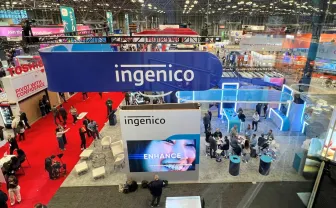Cover All the Bases When Planning for and Communicating Sustainability
Listen to this article

Establishing and executing sustainable practices have become essential to businesses and organizations. A recent study by NielsenIQ found that 78% of U.S. consumers prioritize sustainability. However, NielsenIQ, along with McKinsey & Company, wanted to see whether companies that aligned their activities and messaging with this sentiment gained an edge. Their research in 2023 compared companies communicating sustainability to their competitors that did not. The two organizations found that products promoted with claims of sustainability averaged 28% cumulative growth compared to only 20% for products that didn’t.
Keep in mind that consumers aren’t the only stakeholders interested in sustainability. Your partners and investors also want to know that your company prioritizes environmental, social, and governance (ESG) activity. Research by Ernst & Young found that 78% of investors want to see an investment in ESG, even if it hurts short-term profits. Additionally, 76% of investors say businesses aren’t as transparent as they should be when communicating sustainability.
There are two major takeaways for your business, whether you sell to consumers or B2B, from these findings:
- Companies should plan and execute a sustainability plan for their organizations.
- Companies should find ways to effectively and accurately communicate their commitment to sustainability to their markets.
Tips for Improving Sustainability
As with any effective business initiative, sustainability starts with a plan, but that plan will look very different for companies operating in different industries. The U.S. Environmental Protection Agency’s guide Smart Steps to Sustainability 2.0 lists a wide range of resources that can help businesses make smart decisions regarding sustainable refrigeration, transportation, pest management, water use, cleaning and sanitation, materials management, food services, and more.
However, according to the EPA, all organizations should follow this framework to begin “greening”:
- Get Ready: Understand compliance requirements, build a network for support, and engage employees.
- Get Started: Define your vision and approach to sustainability and identify impacts on the environment and your business.
- Set Goals: Identify SMART goals (specific, measurable, attainable, relevant, and time-sensitive), prioritize them, and assign responsibilities.
- Go Green: Implement your strategy and reward teamwork.
- Innovate: Measure progress, update goals based on performance, and look for new opportunities to increase sustainability.
Plans should focus on reducing waste and promoting recycling, using sustainable materials, conserving natural resources, sustainable procurement, and offsetting carbon emissions. The framework takes into account that a business beginning to adapt processes for sustainability may not initially have all the answers. It encourages continually assessing operations and improving as your team learns more and new, more environmentally friendly materials and services become available to you.
The Power of Partnership
As you assess the sustainability of your processes, you’ll quickly find that the impact of your business isn’t limited to what happens within the walls of your office, store, or manufacturing facility. It’s also wise to make informed decisions about your partnerships. Your supply chain and utility companies may immediately come to mind. However, you should consider all partners and their sustainability practices – including your payment technology partners.
Ingenico, for example, takes action to protect the environment in numerous ways:
- Reducing emissions from payment terminal production and transportation
- Using renewable energy, such as wind and solar, when possible in place of traditional power sources
- Choosing terminal design that uses less plastic and no toxic materials
- Carefully selecting raw materials based on how providers mine, produce, source, and transport them
- Promoting repairs and recycling over disposal
- Educating employees to minimize waste and conserve energy
Ingenico takes the responsibility to talk to every partner to understand their progress toward sustainability and factor in the environmental impact that working with them makes on the environment.
Communicating Sustainability to Your Market
Once you have developed and executed a plan to operate more sustainably, you’ll benefit from informing your customers and your partners. Of course, the primary objective of your sustainability plan is to protect and preserve the environment. However, you may also need processes for effectively communicating sustainability for compliance purposes and to meet the demands of your customers and investors. Your audience won’t understand the details of your initiatives – or that you are working toward more sustainable processes and products at all – if you don’t educate them.
Consider working with your marketing team and other stakeholders in your organization to determine the best strategy for communicating sustainability and deciding where, when, and how to craft your messaging. Part of that strategy should include understanding how customers perceive the terms you use and ensuring you are accurately communicating your green initiatives. For example, your market may have a different idea of what “renewable” energy is or how to calculate carbon offsets.
The U.S. Federal Trade Commission has published Green Guides that provide guidance on environmental marketing claims and how to substantiate those claims and avoid deceiving messaging. Transparency and using clear, accurate terminology will help build trust in your brand with regard to sustainability and overall.
When you commit to protecting the environment, form smart partnerships, and establish and follow best practices when communicating sustainability, you’ll help protect the planet and build a reputation that helps position your business for greater success.
To learn more about the advantages of working with a payment technology partner with a strong commitment to sustainability, contact us.










